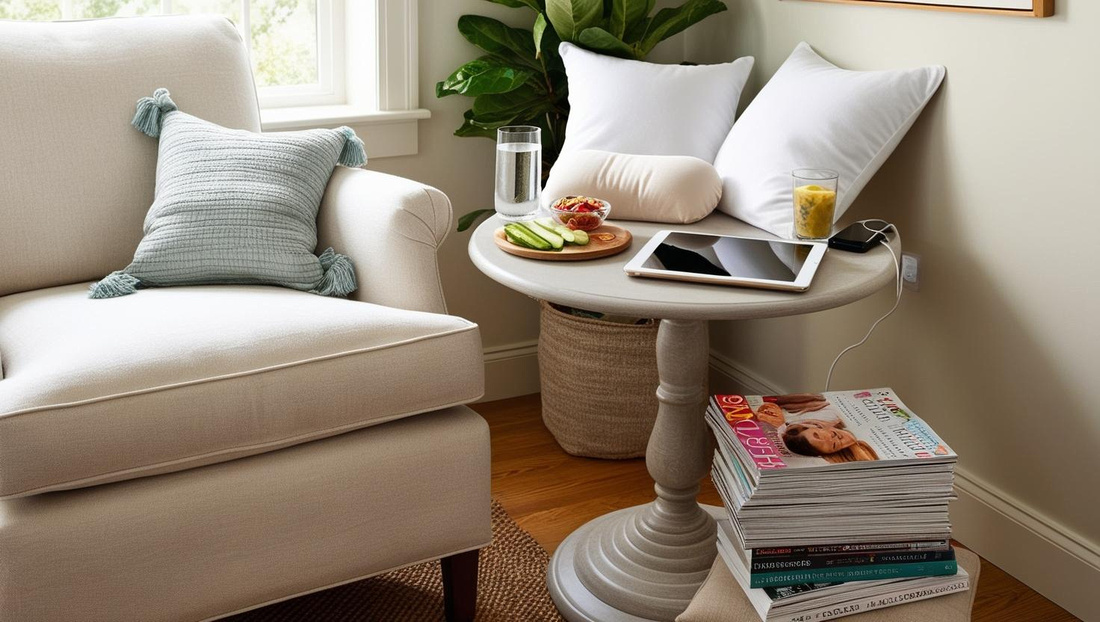VICTORIA STURDY PHOTOGRAPHY
Celebrating Baby's First Year & Beyond As Your Family Grows
Life is made up of everyday special & beautiful moments. We never want to forget the smaller details we love and adore. Victoria Sturdy can help you remember these moments by capturing & creating gorgeous images of your little ones. Her work is creative, imaginative, colourful and timeless.



Postpartum Recovery Tips No One Talks About | Cambridge photographer


Postpartum Recovery Tips No One Talks About
As a newborn and family photographer, I’ve had the privilege of meeting so many incredible mums during one of the most exciting—and exhausting—times of their lives. The reality is that postpartum is a rollercoaster. You’re over the moon about your little one, but you’re also running on fumes and trying to figure out how to feel like yourself again.
Everyone talks about the baby (and rightly so—they’re adorable!), but your recovery matters too. Here are some little-known hacks that can make this time a bit smoother.


1. Stay Hydrated, Especially if You’re Breastfeeding
Hydration isn’t just for pregnancy! Your body is working overtime, especially if you’re breastfeeding. Keep a large water bottle nearby, and consider electrolyte drinks to replenish lost fluids. One mum I photographed swore by coconut water to keep her energy up!
Lack of hydration can lead to fatigue, headaches, and a drop in milk supply. Make it easier by keeping a water bottle in every room you frequent. Some mums even find it helpful to set hydration reminders on their phone. Your baby will change so much in their first few weeks—capture these fleeting moments with a professional newborn session! Book now to create timeless memories.


2. Set Up a Postpartum Sanctuary
Your recovery space matters. Create a cosy nook in your home stocked with:
-
Snacks
-
Water
-
A phone charger
-
Breastfeeding supplies
-
Entertainment (books, magazines, or a tablet)
This little retreat will be your go-to for feeding sessions and much-needed breaks. Having everything within arm’s reach can make those long nights and cluster-feeding periods much easier to manage. Let me capture those tender early days with a relaxed, in-home newborn session. Reach out today to book your spot!


3. Embrace the Postpartum Wardrobe
Loose, comfortable clothing and easy-access nursing tops are lifesavers. But here’s a tip no one tells you: invest in larger, dark-coloured underwear. They’re not glamorous, but they’re practical and comforting during those early weeks of healing.
Postpartum bodies need extra love. Opt for soft, stretchy fabrics and avoid anything restrictive. High-waisted leggings and oversized tops can be both comfortable and stylish while you heal. Your body just did something incredible! Celebrate this chapter with a beautiful newborn session that honours your journey into motherhood.


4. Eat Recovery-Boosting Foods
Your body needs nourishment to heal! Prioritise:
-
Iron-rich meals (to replenish blood levels)
-
Anti-inflammatory foods (turmeric, ginger, leafy greens)
-
Healthy fats (avocados, nuts, salmon) to support hormone balance
Bonus tip: Stock your freezer with ready-made meals before your baby arrives! Having nutritious meals ready to go can be a lifesaver on exhausting days.


The Power of Pelvic Floor Therapy
Pelvic floor therapy isn’t just for severe symptoms. Even if you feel “fine,” a few sessions can help prevent future issues like incontinence, prolapse, or abdominal separation (diastasis recti). Many mums I’ve met wish they had started sooner!
Your pelvic floor muscles go through a lot during pregnancy and childbirth, whether you had a vaginal birth or a C-section. Weakness or tightness in these muscles can lead to discomfort, pain, or long-term issues if left unaddressed. A strong pelvic floor supports your core, stabilises your body, improves posture, and helps with bladder and bowel control.
Even gentle exercises, like deep breathing, pelvic tilts, and Kegels (when done correctly), can be a great start. However, working with a specialist can ensure you’re engaging the right muscles and not overcompensating, which can sometimes make issues worse.
If you’re experiencing symptoms like leaking when you laugh or sneeze, lower back pain, or a feeling of heaviness in your pelvic area, pelvic floor therapy can make a significant difference in your recovery. It’s never too late to start!


6. Sleep Isn’t Optional—It’s Essential
Yes, “sleep when the baby sleeps” sounds impossible, but it’s one of the most important things you can do for your recovery. Sleep deprivation can affect your mood, energy levels, immune system, and ability to bond with your baby. Prioritising rest isn’t a luxury—it’s a necessity for your well-being.
Here are some practical ways to improve sleep in the postpartum period:
-
Split shifts with your partner or support person – Taking turns on night feeds or baby care can ensure both parents get some quality sleep.
-
Nap whenever possible – If a friend or family member offers to watch the baby, take advantage of the opportunity to rest, even if it's just for 30 minutes.
-
Optimise your sleep environment – Use blackout curtains, white noise machines, and comfortable bedding to create a soothing atmosphere. Even short naps feel more restorative in a peaceful space.
-
Limit screen time before bed – The blue light from phones and tablets can disrupt melatonin production, making it harder to fall asleep when you have the chance.
-
Practice mindful relaxation techniques – Deep breathing, meditation, or gentle stretching before bed can help signal to your body that it’s time to rest.
It’s tempting to use baby’s nap times to get things done, but sometimes, the best thing you can do is rest. Accept help when it’s offered, and don’t be afraid to ask for extra support if you’re struggling with exhaustion.
While you catch up on sleep, I’ll take care of capturing your baby’s earliest days—book your newborn session today!


-
Normalise Asking for Help
Postpartum recovery is not a solo mission. Don’t hesitate to lean on friends and family:
-
Ask for help with laundry or meals.
-
Let someone hold the baby while you shower.
-
Accept offers of support—it truly makes a difference!
There’s no shame in asking for help—motherhood is a team effort! Support makes the journey smoother and allows you to focus on bonding with your baby.


8. Take Care of Your Mental Health
Postpartum blues are common, but persistent feelings of sadness, anxiety, or overwhelm could signal postpartum depression or anxiety. There’s no shame in seeking help from a professional. Your mental health is just as important as your physical recovery.
Having open conversations and seeking support early can make all the difference. Whether it’s therapy, a support group, or simply talking to a trusted friend, know that you are not alone.


9. Invest in a Quality Breast Pump and Nipple Care
Breastfeeding and pumping can be challenging. A few essentials can make it easier:
-
A high-quality breast pump
-
Soothing gel pads for soreness
-
Lanolin cream to prevent cracking
One mum I photographed told me she wished she had known about silver nipple cups earlier—they were a game-changer for her healing! Being prepared can make your breastfeeding journey much smoother.


-
Celebrate Small Wins
Every milestone counts. Whether it’s successfully breastfeeding, walking around the block, or surviving the first solo outing with your baby, give yourself credit. Motherhood is hard, and you’re doing amazing. Postpartum recovery is as unique as each family I photograph. Remember, there’s no “perfect” way to heal or parent. Be gentle with yourself, seek support, and take it one day at a time.
BOOK ONLINE BELOW
WEEKEND SESSIONS BOOK BELOWWould you like more information about booking a session?
